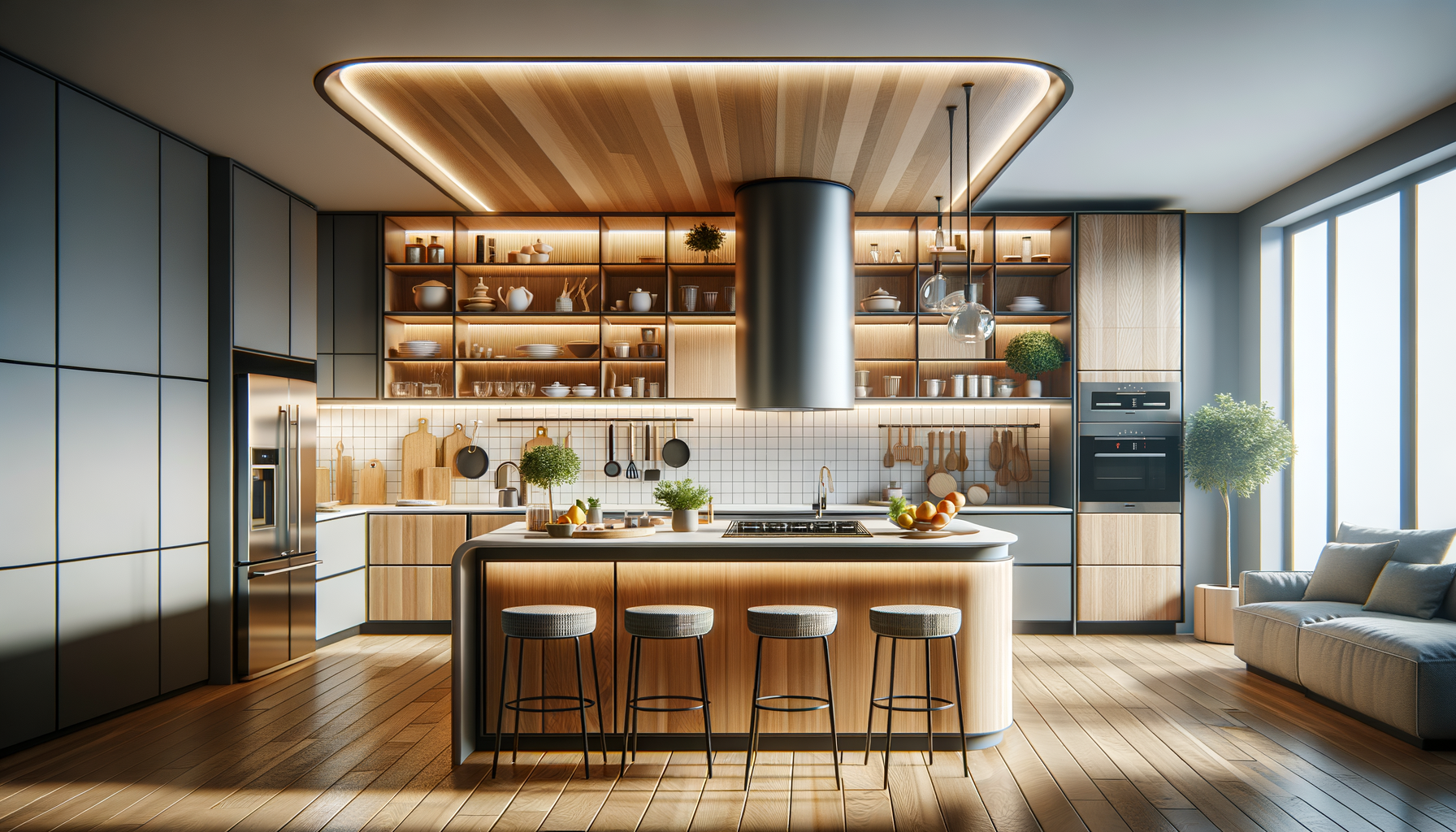The Evolution of Kitchen Design
The journey from traditional to modern kitchens has been transformative. In earlier times, kitchens were purely functional spaces, often detached from the aesthetic considerations of the home. They were designed for utility, with little regard for comfort or style. However, as lifestyles evolved, so did the kitchen. The modern kitchen is now a focal point of the home, a place where functionality meets design.
Modular kitchens have played a significant role in this evolution. They offer a blend of efficiency and elegance, providing customizable solutions that cater to individual needs and preferences. Unlike conventional kitchens, which require extensive planning and construction, modular kitchens come in pre-fabricated units that can be easily assembled. This innovation not only saves time but also allows for greater flexibility in design.
Today, modular kitchens are available in a variety of styles, from sleek and minimalist to warm and rustic. This diversity ensures that homeowners can find a design that complements their personal taste and the overall aesthetic of their home. The shift towards modular kitchens is not just a trend; it is a reflection of the changing dynamics of modern living, where convenience, style, and efficiency are paramount.
Customization and Flexibility
One of the most appealing aspects of modular kitchens is their customization potential. Unlike traditional kitchens, which often come with fixed layouts and designs, modular kitchens offer a high degree of flexibility. Homeowners can choose from a wide range of modules, each serving a specific function, to create a kitchen that suits their unique needs.
This customization extends beyond mere aesthetics. Modular kitchens allow for the integration of modern appliances and smart technology, enhancing both convenience and functionality. Whether it’s incorporating a state-of-the-art oven or a smart refrigerator, modular kitchens can be tailored to accommodate the latest innovations in kitchen technology.
Furthermore, modular kitchens are designed to maximize space. With urban living spaces becoming increasingly compact, the ability to optimize space is a crucial advantage. Modular units can be arranged in various configurations to make the most of available space, ensuring that even the smallest kitchens can be functional and stylish.
Cost-Effectiveness and Efficiency
Cost is a significant consideration for many homeowners when redesigning their kitchens. Modular kitchens offer a cost-effective solution compared to traditional kitchen renovations. The pre-fabricated nature of modular units reduces labor costs and construction time, making them an attractive option for budget-conscious individuals.
Moreover, the efficiency of modular kitchens extends beyond cost savings. The installation process is streamlined, often taking significantly less time than a traditional kitchen renovation. This efficiency means less disruption to daily life, a crucial factor for busy households.
Additionally, modular kitchens are designed with durability in mind. High-quality materials and finishes ensure that these kitchens can withstand the rigors of daily use, providing long-term value for homeowners. This durability, combined with the ability to easily replace or upgrade individual modules, makes modular kitchens a wise investment for the future.
Aesthetic Appeal and Modern Trends
The aesthetic appeal of modular kitchens cannot be overstated. They offer a sleek, modern look that aligns with contemporary design trends. From clean lines to innovative materials, modular kitchens are at the forefront of kitchen design.
Current trends in modular kitchen design include the use of bold colors, open shelving, and integrated lighting solutions. These elements not only enhance the visual appeal of the kitchen but also contribute to its functionality. For instance, open shelving provides easy access to frequently used items, while integrated lighting ensures that the kitchen is well-lit and inviting.
Furthermore, modular kitchens can be personalized with various finishes and textures, from glossy laminates to natural wood. This variety allows homeowners to create a kitchen that reflects their personal style and complements the overall design of their home.
Environmental Considerations
In today’s eco-conscious world, the environmental impact of home design choices is a significant consideration. Modular kitchens offer several advantages in this regard. The use of sustainable materials and energy-efficient appliances can significantly reduce the environmental footprint of a kitchen.
Many modular kitchen manufacturers prioritize sustainability, using materials that are both durable and eco-friendly. Additionally, the modular nature of these kitchens means that individual components can be replaced or upgraded without the need for a complete renovation, reducing waste and resource consumption.
Moreover, the efficient use of space in modular kitchens can lead to energy savings. By optimizing the layout and incorporating energy-efficient appliances, homeowners can reduce their energy consumption, contributing to a more sustainable lifestyle.








